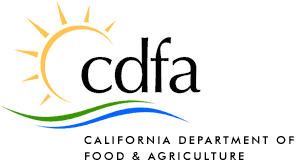Reducing Food Waste: A Circular Solution for a Sustainable Future
Join us in the fight against food waste and towards a greener tomorrow.

Welcome to our webpage dedicated to addressing the waste problem in our food system. As scientists and concerned citizens, we recognize that the way we produce, consume, and waste food is having a serious impact on our planet. In fact, as much as one-third of all food produced is either lost before it reaches a store or wasted before it reaches consumers' plates. This not only affects the environment, but also has social and economic consequences.
Join us as we explore the various impacts of food waste on our environment, society, and economy, and work towards implementing solutions to address this pressing issue. Together, we can create a more sustainable future for our planet and future generations to come.

Did you know that in the United States alone, 40-50% of all food is thrown away, with an estimated annual cost of about US $750 billion every year (FAO, 2019)? Not only does this waste take up to 21% of America's landfill volume, it also contributes 9% to the total US greenhouse gas emissions. Moreover, given that agriculture utilizes 70% of the world's freshwater resources, food waste also represents a significant loss of precious water resources.
As a solution, we believe in transitioning from a linear economy based on the “take-make-consume-dispose” model toward a circular economy, where resources are used and re-used in a closed loop as long as possible. This circular economy model aims to maintain the value of resources in the system, while products are re-claimed to extract as much value as possible before safely returning them to the biosphere.


Communication & Public Engagement
Explore our recorded presentation, "Toward a Circular Economy: From Agricultural Waste to Sustainable Plant Production through Microbe-Mediated Processes." This presentation, initially shared at the American Society of Agronomy (ASA), Crop Science Society of America (CSSA), and Soil Science Society of America (SSSA) 2022 International Annual Meeting in Baltimore, is now a part of the educational resources on Lab to Farm. The discourse elucidates the potential of utilizing microbes to transform agricultural waste into valuable resources, aiding sustainable plant production. Our project underscores practical and easily deployable mitigation strategies that amalgamate the management of soil carbon dynamics, foster beneficial microbiota, and offer alternative disposal routes for agricultural waste. The focus is on the use of Biochar and Bokashi amendments, demonstrating their effectiveness in enhancing soil health and citrus nursery tree production in both greenhouse and field settings. The findings presented herein aren't mere futuristic aspirations but tangible actions contributing to a circular economy, where the nutrients from organic wastes are recycled into high-value agricultural products. This initiative stands as a testament to reducing agriculture's environmental footprint while augmenting soil health and crop fitness, embodying the true essence of sustainable food production and waste management. Dive into this resource to uncover the intertwined narratives of microbes, agricultural waste reutilization, and sustainable plant growth as we unravel a pragmatic approach towards a more eco-conscious and productive agricultural paradigm.
A Wellspring of Waste with Garden Futurist Deborah Pagliaccia
Delve into our podcast episode, "A Wellspring of Waste with Deborah Pagliaccia," now featured as an educational resource on Lab to Farm. This episode unveils a distinctive approach toward addressing some of the most pressing environmental challenges faced by industrial agriculture while spotlighting accessible techniques for today's gardeners. Hosted by Garden Futurist co-producers Sarah Beck and Adriana López-Villalobos, the episode unfolds Dr. Deborah Pagliaccia's multi-faceted exploration into complex issues like soil health, water and fossil fuel use, food access, and waste sustainability. Dr. Pagliaccia, affiliated with the University of California, Riverside, and the California Agriculture and Food Enterprise, shares her innovative research on utilizing fermented bioproducts from bokashi composting to nourish both plants and soil microorganisms, presenting a viable pathway towards a circular economy. This conversation extends beyond academic discourse, inviting individuals and industries to participate in the movement towards sustainable food systems by embracing practices that significantly reduce food waste and its accompanying environmental footprint. Through the harmonious blend of scientific insight and practical solutions, this episode serves as a catalyst for change, urging us to re-evaluate and amend our current linear consumption patterns for a more sustainable and eco-conscious agricultural landscape.
PUBLICATIONS
Pagliaccia, D., Bodaghi, S., Chen, X., Stevenson, D., Deyett, E., De Francesco, A., Borneman, J., Ruegger, P., Peacock, B., Ellstrand, N., Rolshausen, P. E., Popa, R., Ying, S., & Vidalakis, G. (2020). Two Food Waste By-Products Selectively Stimulate Beneficial Resident Citrus Host-Associated Microbes in a Zero-Runoff Indoor Plant Production System. Frontiers in Sustainable Food Systems, 4, 593568. https://doi.org/10.3389/fsufs.2020.593568
Gebiola, Marco & Garnica, A. & Pagliaccia, D. & Tomberlin, J.K. & Mauck, Kerry. (2023). Impact of bokashi fermentation on life-history traits of black soldier fly Hermetia illucens (Diptera: Stratiomyidae) larvae at an industrial scale. Journal of Insects as Food and Feed. 1-6. 10.3920/JIFF2022.0173.
Deborah Pagliaccia; Michelle Ortiz; Michael V Rodriguez; Agustina De Francesco; Madison Amador; Benjamin Maki; Francesca Hopkins; Jonathan Kaplan; Valeria Lavagi; Samantha Ying; Georgios Vidalakis (2023). Enhancing Soil Health and Nutrient Availability for Carrizo citrange (Citroncirus spp.) Through Bokashi and Biochar Amendments: An Exploration into Indoor Sustainable Soil Ecosystem Management. Scientia Horticulturae. Volume 326, 15 February 2024.
Enhancing Greenhouse Agriculture: Analyzing the Cost-Effectiveness and Agronomic Benefits of Bokashi and Biochar Waste By-Products Soil Amendments in Citrus Nursery Production. Coming next.
Research-Based Podcast Series
Interested in learning more about biochar in a more accessible, on-the-go format?
We’ve created a series of AI-generated Spotify podcast episodes that dive into key topics covered throughout this website, all grounded in peer-reviewed research and scholarly publications from the LabtoFarm group.
These episodes discuss the latest findings in the field and unpack the science behind biochar’s environmental, agricultural, and climate-related impacts. Whether you’re an experienced researcher, a student, a grower, or simply curious about sustainable practices, these conversations are designed to meet you where you are—making complex research more approachable and relevant.
We invite you to click on each Spotify link and listen in. These AI-powered podcasts are a great way to engage with the latest biochar knowledge, stay up to date on current studies, and hear practical insights drawn directly from the academic literature.
Food Waste Digestates Boost Beneficial Citrus Microbes
What if food waste and beer mash could help grow healthier plants indoors? In this episode, we explore a cutting-edge study that reveals how liquid by-products from organic waste can safely boost beneficial microbes—especially Pseudomonas—in citrus-growing systems that reuse water. Tune in to learn how this sustainable innovation could transform waste into a powerful tool for soil health and food production.
Listen to our pocast!
1
Bokashi Fermentation Enhances Black Soldier Fly Larval Development
Can fermentation supercharge insect farming? This episode dives into a fascinating study on how bokashi-treated food waste—like spent grain and discarded oranges—dramatically boosts the growth and efficiency of black soldier fly larvae. Discover how this low-tech, high-impact method could turn even poor-quality organic waste into a valuable resource for sustainable agriculture.
Listen to our pocast!
2
Bokashi and Biochar Enhance Citrus Soil Health
Can carbon-rich soil amendments boost plant growth and cut our reliance on synthetic fertilizers? In this episode, we unpack new research on how bokashi and biochar affect soil health and Carrizo citrange plant development in indoor systems. Learn how these organic additives improve nutrient levels, support seed germination, and offer a promising path toward more sustainable agriculture.
Listen to our pocast!
3
Organic Soil Amendments in Citrus Nurseries: Benefits and Costs
Greenhouse agriculture is getting a sustainable upgrade with the help of bokashi and biochar. This episode breaks down research showing how these organic amendments, made from agricultural waste, can improve citrus plant growth, boost water retention, and significantly cut nursery costs. Discover how eco-friendly practices are proving to be both practical and profitable.
Listen to our pocast!
4
Fundings























